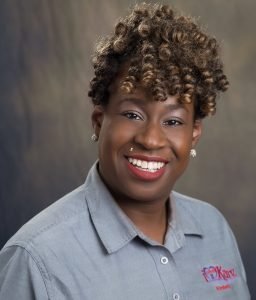It has been over six months since the novel coronavirus (i.e., COVID-19) completely changed our lives creating this “new normal”. Masks have become a part of our daily wear. Restaurants have reopened but most remain takeout only. Retail shops are back in business but have closed off their fitting rooms. Senior centers implemented a ban on visitors, but as of this month, some centers are slowly starting to reopen to the public.
The pandemic has affected everyone differently, so I wanted to ask some members of the Atlanta Regional Commission’s Advisory Committee on Aging (ACA) from around the Atlanta region how their lives have changed since March 2020. See their responses below:
Travis Allen (DeKalb County):

Once the Governor of Georgia mandated the closure of businesses schools, and government facilities in March and April 2020, everything seemed to stop. Everyone was home, including me. The only facilities open were gas stations, supermarkets, and medical facilities. Also, the MARTA bus stopped running in my neighborhood on April 20th and has not run in this neighborhood since.
Now, months later, most facilities are open, but you need to wear a mask, keep six feet apart to social distance, and use hand sanitizer if available, or wash your hands.

Mildred Schmelz (Henry County):
The sheltering in place, constant fear of contacting the virus, not interacting with my children, grandchildren, and friends just makes it extremely hard.
I am finding ways to interact through Zoom, FaceTime, and telephone calls, but I don’t believe I will ever be able to really adjust to this craziness. I will continue to try and stay safe and find additional ways to interact with others which helps a great deal.

Annie Copeland (Gwinnett County): Life events that hit the core of human nature which I have personally experienced during this pandemic include: not attending a funeral for a dear friend because none took place during the early onset of the pandemic, inability to give and receive hugs from close friends, and not getting together with church friends to worship. These are just a few things I have experienced. I remember the awful helpless feeling leaving a very good friend at the emergency room door because of their heart condition and the helplessness I felt not being able to be with my friend. It literally took a couple of months before I felt comfortable visiting my very close friends and neighbors in my driveway. There were no hugs and we were social distancing, but it was really fun! My adult children were insistent that I keep myself home during this pandemic because they were afraid for me.
New challenges have included buying groceries through Instacart, which was a rewarding experience for me. Virtual worship has become very meaningful. Ways to cheer and be supportive of your friends are about being creative, like tying balloons on their mailboxes with notes on them. Texting is good, but when you are home alone, it’s great to hear somebody’s voice and know that they are interested in what you’re doing and how you’re doing. There are many ways that you can let people know that you love them and care about them during this pandemic. It gets a little creative and challenging at times, but it has become rewarding.

Kimberly Haase (Cobb County): [My business] iLoveKare is a personal assistance service for active aging adults. Our clientele fell within the aging population, due to COVID-19, “older adults & people who have severe underlying medical conditions” are the most susceptible according to the CDC. We were restricted from visiting our clients in personal-care homes, assisted living facilities, and nursing homes.
iLoveKare has started a technology fundamental course. We go into 55+ communities, long-term care facilities, health-care facilities, and senior centers to help introduce technologies that can combat social isolation. These technologies include phones, tablets, laptops to help introduce and educate aging adults with programs that can keep them connected to their families and health care physicians.
The COVID-19 pandemic has been challenging on many levels, but sharing our experiences with one another can help us feel connected while we are apart. Consider the One2One Telephone Reassurance Program to mitigate social isolation. Also, ARC’s Americorps Seniors, formerly known as RSVP, trains adults age 55+ to present information on important topics that provide their peers with knowledge and resources and has gone virtual.
You can also view opportunities to connect virtually on a variety of topics by visiting the Empowerline calendar.



